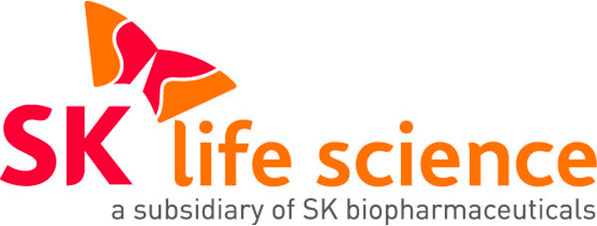November 16, 2016
The Republic
Abe Kwok
One of the precepts of Proposition 206 is that paying a living wage is the price of doing business, a burden that the private sector itself must bear.
What then when it upends businesses that provide a statefunded social service?
That scenario is playing out with some 700 providers that serve about 35,000 members among Arizona's most vulnerable — individuals with developmental disabilities.
Most of the providers are struggling with how to make the new mandatory minimumwage work. Some profess
to be nearing panic mode.
Susan Bastian, whose Blythe Center employs 142 people and services 137 individuals, wonders where she's going to find the money.
Payroll accounts for a great majority of her operating budget, and there are few assets and even less, if any, cash reserve. Most other providers are in the same predicament.
To meet the requirements of Prop. 206 — $10anhour minimum pay by Jan. 1 (/story/news/politics/elections/2016/11/08/arizonaminimumwage proposition206electionresults/92970650/) — Bastian said she must raise $300,000 for 2017 alone, or face dark scenarios, including closing the doors.
"The whole network is stressed," she said. It's not difficult to see why.
Budget cuts, worker turnover
Many are operating on thin margins, especially after Arizona cut its service rate in successive years during the Great Recession by more than 25 percent. The state Legislature has restored a few percentage points since.
Their worker pool is already shallow and inconstant; turnover is 50 percent for operators who are lucky, upwards of 80 percent for others.
To keep the turnover from going even higher, many already offer above the current minimum of $8.05 an hour.
EDITORIAL: Prop. 206 sounds good but has heavy costs (/story/opinion/editorial/2016/10/25/prop206endorsement/92520850/)
And this is on top of other demands exerted on this healthcare segment. Compliance rules, such as staffparticipant ratios, with the state and the Affordable Care Act. Training. An incoming federal law that reclassifies salaried employees as hourly workers and requires employers to pay overtime.
Now comes minimum wage.
Even among the bigger players, such as Aires, which employs about 880 workers and services some 600 people, there's not much wiggle room.
Its owner, Wendy Shaw, says larger providers like hers responded to the state cuts by eliminating middle management and retirement benefits and scaling back vacation. And, in her case, by also cutting entry pay from $9.25 an hour to $8.05 (now up to $8.50).
Shaw's backup plan now is to sell off properties and lease them back — as Arizona did years ago during its budget crisis. The move would help her bridge the $2.3 million shortfall for 2017.
Something will have to give
Providers say they don't begrudge paying higher minimum wages. Or oppose the concept of paid sick leave.
It is a job, after all, that demands greater patience and tolerance than most, where getting slapped or bitten, changing participants who soiled themselves or spoonfeeding others may all be in a day's work.
KWOK: Prop. 206 caught even its supporters off guard (/story/opinion/oped/abekwok/2016/11/09/kwokproposition206supportcaughtevenits activistsoffguard/93527898/)
Some of the providers and their workers are parents or caregivers of the population they serve. They know the value of their work.
But the profession is also mostly funded through state contracts. (Nonprofits the likes of Gompers also rely on grants and donations but otherwise face the same conundrum.)
And when costs are going up and the revenue stays fixed, something has to give.
Will industry get a bailout?
Shaw, Bastian and other operators pin their hopes on their version of a government bailout — greater restoration of service rates. But it's a tall order. The industry is reimbursed at rates more than 26 percent lower than benchmarks (last set by the state in 2014); an infusion of an extra $188 million would be needed just to get to that level.
Even if more money comes through from the state, providers fear voterapproved Prop. 206 will mean that employees are locked in longer at minimum wage and that tension will be felt by nextstepup colleagues.
At Aries, experienced directcare workers will see a small bump to $10 an hour, the same as new workers. Supervisors there start at $12 an hour, and they will see a big narrowing of the gap between their pay and the people they manage. Shaw wonders, "And are those people going to stay?"
Fears of disruption, lost services
More reduced hours and turnover or loss of staff are no small thing, given disruption in the lives of the population served often leads to emotional and behavioral problems.
The bigger fear among providers is of their brethren closing up shop, because there's not enough capacity in the network to simply absorb those in need of services.
Deborah Lamoree, who operates four group homes under Disability Development Resources and manages 24 staffers, frets over her adult daughter with a moderate intellectual disability. She attends a workbased program 35 hours a week and recently came home alarmed over rumors that the program may be cut.
"And if that were ever to happen, what am I to do?" Lamoree said. "She can't just be at home for those 35 hours."
It is the same scenario she fears for others with developmental disabilities who may lose their services, victims of unintended consequences of living wages and economic justice.
Email Kwok at akwok@azcentral.com (mailto:akwok@azcentral.com). Twitter: @abekwok (https://twitter.com/abekwok).
Read or Share this story: http://azc.cc/2fX6qxJ














